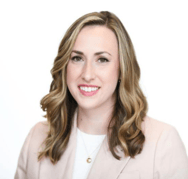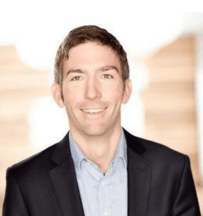June 28, 2023
2023 SBER Q2 Symposium
SR Inc held our second quarterly 2023 Executive Symposium on June 22nd at simultaneous live events at the Salesforce Tower in San Francisco, CA and the Cambridge Innovation Center in Cambridge, MA, as well as virtually. Member-Clients in attendance were engaged on two major topics, “Sustainability Strategy Leadership” and “Corporate Global Decarbonization.”
The first session, moderated by SR Inc CEO Jim Boyle, addressed opportunities for Member-Clients to effect greater change in the decarbonization space, specifically across reporting and renewable energy strategy. Key takeaways from this discussion include:
- Tech sector retrenchment combined with European mandatory sustainability reporting is driving globally scaling businesses to seek shared-cost assistance with sustainability strategy and reporting.
- Grounding analyses of high emissions climate scenarios in understandings of a. the impact of planetary boundaries and b. the at-risk social systems which provide humans with quality of life and dignity reveals a dissonance with current TCFD scenario analysis best practice. Rather than considering the systemic climate impacts of a high emissions scenario, current practice assumes expected secondary effects and non-linear change does not directly impact companies.
- Peace RECs present a new opportunity for businesses to make globally noticed impact in some of the most strategic-for-impact markets on Earth.
- Member-Clients working with CEBA, CEBI, CRS, MRET, EPA, and others can help rationalize, multiply, and globally scale the market for “Purchaser Caused EACs.”
- Member-Clients may have an opportunity to simultaneously help cause renewable energy capacity and help rebuild the energy industry of the Ukraine, as ongoing conflict in the country reinforces their need for energy security and independence.
- Aggregated procurement has been an effective way for Wayfair to make progress towards reducing their Scope 2 emissions and drive the grid to become meaningfully more renewable.
- Autodesk works to move impact up the value chain across their decarbonization initiatives, from impactful renewable energy procurement to advancing the carbon removal offset market.
Speakers from Wayfair and Autodesk then built on this conversation, addressing their own experiences with causing new renewable energy capacity and making decarbonization easier for their value chains.

Maggie Finnegan, Head of Climate & Product Sustainability at Wayfair, shared with other attendees about Wayfair’s Scope 2 decarbonization strategy. With 60 global sites, most of which are leased rather than owned, Wayfair’s capacity to pursue on-site solar is constrained by the cooperation of their landlords. Therefore, Wayfair has championed the causation of new renewable energy capacity by participating in multiple SR Inc-facilitated aggregated VPPAs. Maggie provided reflection on some of the realistic challenges of pursuing Scope 2 mitigation this way, highlighting how important it is to have a buyer advisor with experience managing complex procurement negotiations. Particularly with the recently announced Liberty Solar offtake, Wayfair continues to commit to an impactful decarbonization strategy.

Building on this presentation, Joe Speicher, Vice President of ESG & Impact at Autodesk, then discussed Autodesk’s own decarbonization approach. Autodesk utilizes a three-pronged strategy to fulfill their climate commitments, involving decarbonization, impactful offsetting, and maintaining 100% renewable energy. Joe commented on how, by building out a strong internal sustainability program, Autodesk not only builds internal value via their growing expertise but can then apply that expertise to de-risk the space for those in their value chain. Autodesk also participated in the 2022 Liberty Solar VPPA, and furthermore is supporting the development of the market for carbon removal offsets. They approach their contribution from both the supply and demand side, investing and providing resources for early carbon removal technologies such as Hierloom and Vesta, as well as committing to purchasing these offsets via the Frontier investment vehicle while they are still on the pricier end. Ultimately, these actions will enable other major tech players with even larger budgets to feel more comfortable also participating in these mitigation strategies.
The symposium’s second session was on “Corporate Global Decarbonization,” with a specific focus on Scope 3. The SR Inc Research & Consulting team presented a developed framework for Scope 3 collaboration and innovation, grounded in a number of cross-sectoral case studies. During this portion, attendees were all active participants in two guided breakout sessions, which enabled peer to peer brainstorming around specific innovative solutions. This session is part of SR Inc’s multi-year research process around Scope 3 mitigation, and will feed into additional forthcoming resources at both our Q3 and Q4 Symposia.
The presentation from both portions of the event can be found in the SR Inc Digital Library, accessible exclusively to Member-Client executives. Please contact info@sustainround.com to learn more about gaining access to the full extent of the SR Inc Digital Library.
For more on the deliverables from SR Inc’s 2023 Q2 Symposium, refer to 2023 SBER Q2 Symposium: CSRD & Scenario Analysis. SR Inc looks forward to reconvening next at our Q3 Symposium on September 21st during Climate Week in New York City.
